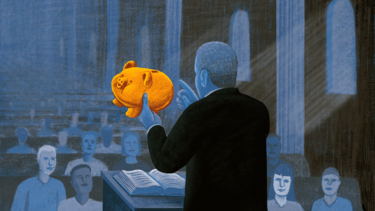Research
Sermons with Stories of Debt Can Help Churchgoers Stay Frugal
A recent study co-authored by Yale SOM’s Thomas Steffen and Brett Campbell found that when religious leaders gave sermons warning against excessive debt, areas with high church membership tended to have lower indebtedness.

Uncovering the Mental Health Impacts of COVID-19 in Low- and Middle-Income Countries
A new study co-authored by Yale SOM’s Mushfiq Mobarak investigated how mental health fared after the pandemic arrived in eight low- and middle-income countries, and found signs of a sharp, and lasting, deterioration.

Can AI Help Design a More Appealing Car?
Designing a new car is expensive, time-consuming, and risky. In a new study, Yale SOM’s Alex Burnap shows how machine learning can identify promising models and help designers generate new designs.

How Social Media Rewards Misinformation
A majority of false stories are spread by a small number of frequent users, suggests a new study co-authored by Yale SOM’s Gizem Ceylan. But they can be taught to change their ways.

A Wave of Acquisitions May Have Shielded Big Tech from Competition
According to a new study co-authored by Florian Ederer, the fraction of startups that are acquired has skyrocketed, eliminating many potential competitors of big tech firms.

R&D Investment Can Have Multiplier Effects—If It’s Made in the Right Industries
A new study co-authored by Prof. Song Ma finds that allocating research funding to certain scientific fields can have long-term ripple effects across sectors and countries.

Black Households Have Less Access to Banks
Why do some demographic groups visit banks less than others? According to a new study by Yale SOM’s Alexander Zentefis and the Fed’s Jung Sakong, the primary barrier for Black households is a lack of nearby branches.

Black Boys Face Double Jeopardy at School
Teachers tend to blame Black boys more than White boys for identical misbehaviors, finds Yale SOM’s Jayanti Owens. Black and Latino boys also receive harsher punishment because the schools they attend tend to have more punitive cultures.

A Long-Term Solution to Insuring the Sick
In a new paper, Yale SOM’s Soheil Ghili and his co-authors show that longer health insurance contracts could protect consumers who are or become ill against sudden premium spikes.

Building Trust with the Algorithms in Our Lives
Consumers are wary of the recommendations made by algorithms. But according to new research co-authored by Yale SOM’s Taly Reich, showing that an algorithm can learn—that it improves over time—helps to resolve this distrust.
